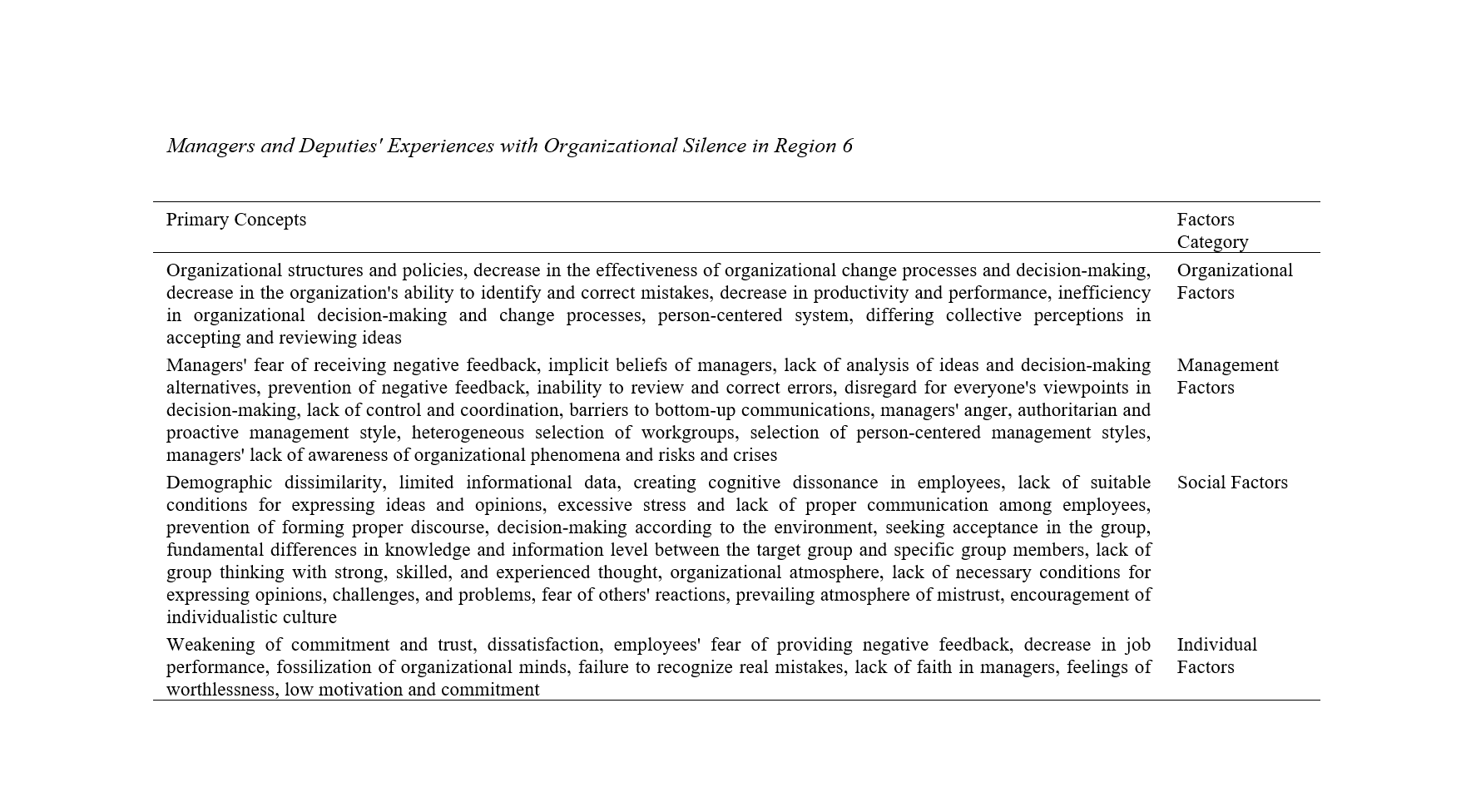The Phenomenology of Experiences of Managers and Deputies in Antecedents and Consequences of Organizational Silence (Case Study: Managers and Deputies of the Six District Offices of the Court of Accounts)
Keywords:
Phenomenology, Antecedents and Consequences of Organizational Silence, Organizational Silence, Managers and Deputies of the Court of AccountsAbstract
Objective: The purpose of this study is to understand the experiences of managers and deputies who have perceived the phenomenon of organizational silence for the first time in real-life conditions. The research question was formed as "What experiences have individuals had in the process of organizational silence?"
Methodology: The study population included managers and deputies of the six district offices, from which 40 individuals were selected. After interviewing 31 individuals, theoretical saturation was achieved in data collection at the Court of Accounts.
Findings: The analyzed findings were categorized into four fundamental concepts: organizational factors, managerial factors, individual factors, and social factors.
Conclusion: The results of this research indicated that the internal social environment, the personal domain of managers, structural, the external environment, and individual factors of employees could significantly influence the emergence of organizational silence. It is essential for managers to pay adequate attention to all aspects of the organization to foster organizational dynamism. The findings of this study reveal that organizational, individual, social, and managerial factors exist that contribute to employee silence. It was also determined that employee silence affects both the employees and the organization. Therefore, it is recommended that employee silence be identified and minimized at the initial stages.
Downloads

Downloads
Published
Issue
Section
License
Copyright (c) 2024 Zeinab Yaghoubi Gelevardi (Author); Zahra Anjomshoaa (Corresponding Author); Sanjar Salajeghe , Akbar Nazari , Rostam Pourrashidi (Author)

This work is licensed under a Creative Commons Attribution-NonCommercial 4.0 International License.















